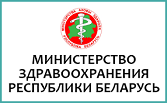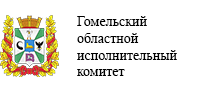The diagnosis is not a verdict!
Modern oncology is one of the most rapidly developing medical disciplines in the world. The introduction of innovative technologies for the diagnosis and treatment of tumors takes us further away from the times when the oncological diagnosis was perceived as a sentence.
The global problem is facing oncologists and scientists - this is the achievement of timely detection of the disease in the early stages, i.e. At the level of micrometastases. Over the past decades, a lot of effective methods of diagnosis and treatment have been developed, and drugs have appeared that act on the tumor itself. Patients who received help in the early stages of the disease continue to lead an active life ten, twenty years, during which it is not necessary to recall the need for further treatment.
So why develop a tumor? There are a lot of reasons for this - the influence of environmental factors, heredity, high probability of viral and parasitic infection, exposure to occupational carcinogens at work, smoking in its various forms and neglect in the treatment of chronic diseases. Chronic diseases, regardless of their etiology, affect the immune system. Failures in the work of the protective barrier of the organism create a favorable ground for the development of various oncological diseases.
Regardless of the condition of the human body, early diagnosis of any disease is the leading and indispensable component of our well-being. Like a healthy lifestyle, understanding the need for regular visits to your doctor and periodic medical examinations at work and at your place of residence has become an integral part of modern thinking. This is the primary prevention of diseases, including malignant diseases.
What to do if the diagnosis of cancer, and you do not have anyone to turn to for help and advice, you are left alone with the problem? First of all, you need to call a specialist psychologist and get professional advice from him. You, most likely, still do not know much about your diagnosis, and the doctor's first forecast is not yet a reason for feeling doomed.
Cancer is a disease that can be treated, and your desire to fight cancer is half the victory that the doctor shares with you. In Russia, about 150,000 people are cured of cancer every year, and with the use of new chemotherapy and radiation treatments, the number of healed compatriots will increase steadily.
Our cancer portal fulfills its informational and educational mission in the lives of those people who have been overtaken by a formidable disease: we will help you understand yourself, understand that the chance of a cure depends not only on the doctors, but also on your attitude towards the situation. Like any difficult circumstances in life, the risk that has arisen for your health requires you to concentrate efforts and active, well-planned actions.
Let's start together the way from the solution of the problem to the successful cure of the disease.
How to cope with your mental state?
A person's severe reaction to a diagnosis or a physician's forecast is natural. Each of us understands that health is the foundation of all life plans and opportunities, so it's not surprising that we take seriously when there is a risk of the disease. But such a reaction, additional anxiety, our heavy thoughts and feelings become an additional factor of this risk, create unnecessary barriers in the fight against the disease. It is unrealistic to give advice for all occasions, each specific situation is unique, and it is necessary to select the only solution to it. This is always easier to do with the support of specialists.
Doctors well know: the problem of the psychological state of an oncological patient is that "trifle", on which the result of treatment often depends. It is necessary to be especially attentive to the psychological component of the disease. If the doctor constantly monitors your physical condition and has the opportunity to check your observations objectively, then your inner, mental state is available to him much less and you should closely follow him.
It may also be that even if you follow all our advice, you will still experience psychological difficulties and it will be difficult for you to cope with the situation. These can be both reactions to the circumstances of your illness, to which you could not prepare or accept them, and conditions that seem to have little connection with the real situation.
Yearning, anxiety, inner tension and anxiety, or, on the contrary, apathy, inhibition, lethargy, unwillingness to do anything, uncontrollable irritation are all symptoms of mental distress. If you have a feeling that you can not cope with your emotional state or these symptoms do not go away within a few weeks, you should pay special attention to them.
The causes of the depressive state can be very different, but first of all you should change the current situation of mental discomfort, and only then think what has led to it. Depression is not a weakness, not a lack of emotional balance or fatigue. This is an independent disease that depletes the strength of the body and disrupts the normal course of many processes. She has her symptoms.
Perhaps you celebrate:
- Increased fatigue throughout the day, not related to the volume of work performed and not passing after rest;
- Constant drowsiness, or, on the contrary, insomnia, if you wake up early, can not fall asleep or repeatedly wake up in the middle of the night;
- Lack of appetite, loss of taste of food or ordinary pleasure from eating;
- Trouble concentrating, it's hard for you to focus on anything;
- If you constantly worry, worry for no apparent reason;
- Constantly feel that you do not need anyone, that all of you are abandoned and do not pay attention to you;
- If you experience unexplained discouragement or longing and all your future is presented to you exclusively in black;
- If you lose weight quickly, it is not necessarily related to your disease, but it is quite possibly one of the signs of depression.
If all this happens to you, then, perhaps, you should take this seriously and apply for qualified advice to specialists.
Do not perceive the need for such treatment as some kind of flaw, do not hesitate to share your problem, specialists in this field exist to help you. You have enough reasons for real anxiety, and do not increase them due to constantly bad mood or anxiety.
Remember: you need to concentrate now all forces on your treatment, and your mental state will largely determine the effectiveness of the basic treatment.
Care for cancer patients
The peculiarity of caring for patients with malignant neoplasms is the need for a special psychological approach. It is necessary to remember at all stages of service that oncological patients have a very labile, vulnerable psyche. When caring for cancer patients, regular monitoring of their condition (weighing, measuring body temperature, nutrition and physiological functions, feeling and mood, etc.) is very important, maintaining a special diary by the patient or his relatives, as any changes may be a sign of improvement Condition or progression of the disease. The keeping of a diary disciplines both the patient himself and all members of his family. The diary can be of invaluable help to the doctor of the oncological dispensary during the next examination or patronage service.
In each case, specialists of the oncological service teach the patient and relatives the hygienic measures, the correct diet, which has its own peculiarities in different forms of the disease and methods of treatment. In some cases, especially after surgical treatment, specialized care is required, carried out by a nurse oncology dispensary (patronage) or a specially trained relative.
In all cases, the main thing in caring for cancer patients is strict adherence to the recommendations of an oncologist doctor and a benevolent attitude to the patient from the surrounding and, first of all, relatives. It is necessary to take measures against attempts of the patient to be treated with znacharian means, which can lead to the most unforeseen complications.



















